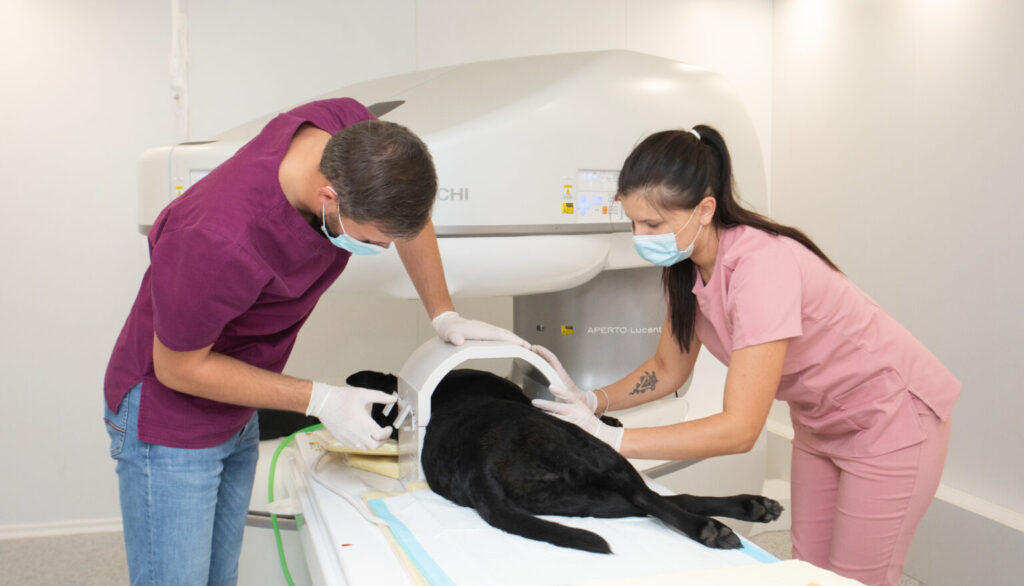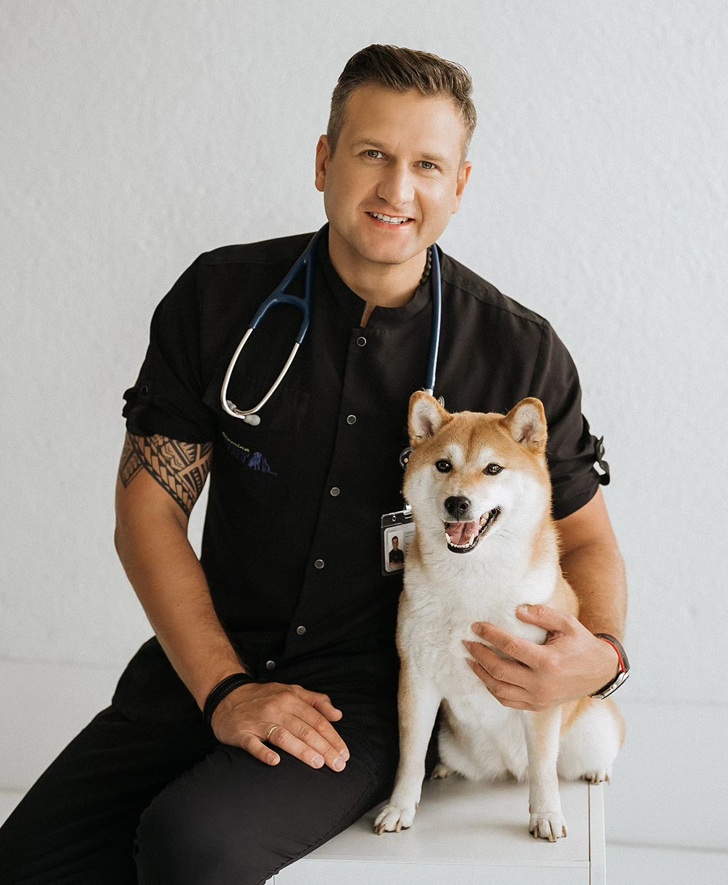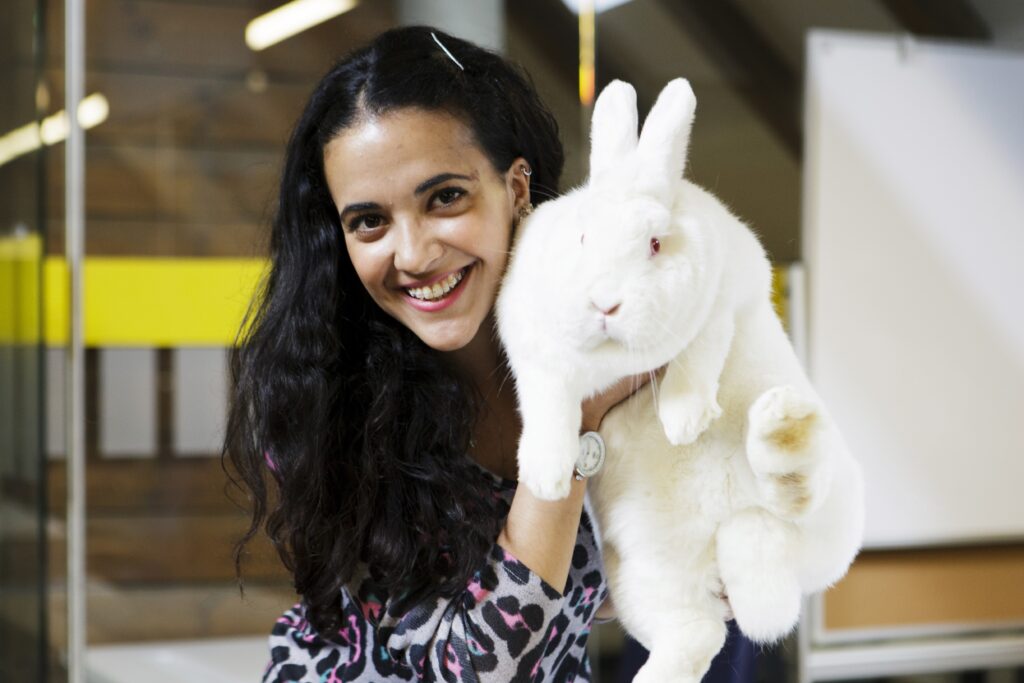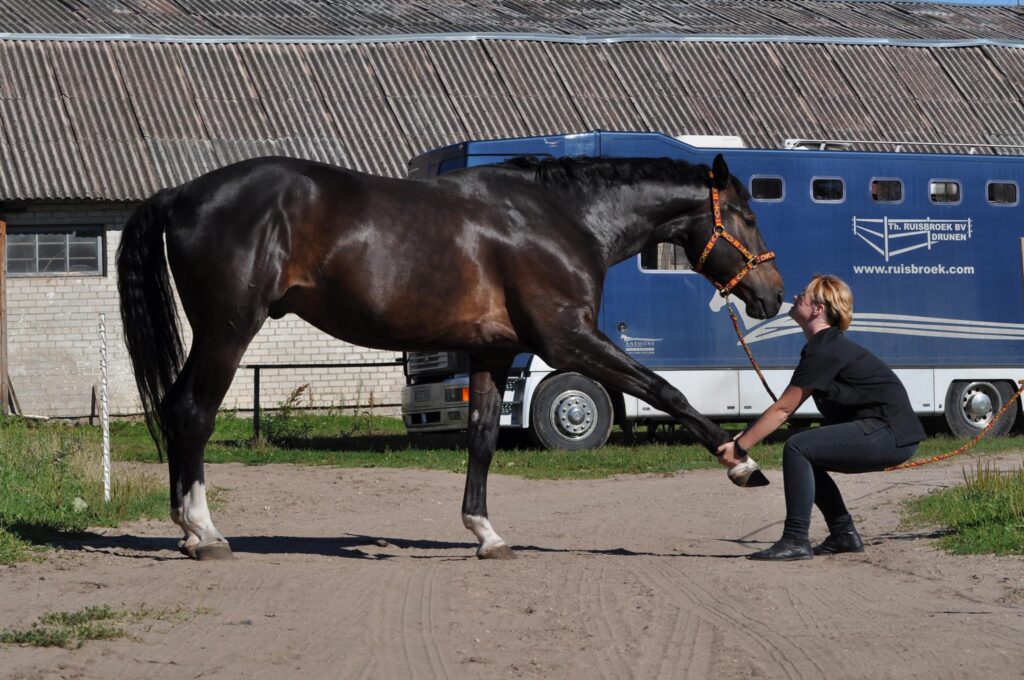Veterinary Medicine Studies Opened the Door to Entrepreneurship – and Television

Paulius Morkūnas, a veterinary oncologist and graduate of the Lithuanian University of Health Sciences (LSMU), is one of the most recognisable figures in his field in Lithuania. Some know him as a highly skilled veterinarian and clinic owner, others from his regular appearances on the TV show TV Pagalba (“TV Help”). As he shares, the start of his career was far from easy, but knowledge gained at university, determination, and a clear dream to work in his chosen profession helped him overcome the challenges.
He Never Considered Any Other Profession
Paulius graduated in Veterinary Medicine 15 years ago. He says he never even considered a different path – veterinary medicine was always his first and only choice.
“I loved being around animals from a very young age and enjoyed helping them, for example, building homes for ants or making birdhouses. So, I never considered applying anywhere else – just to veterinary medicine. I listed it as my first and only preference. I don’t know what I would’ve done if I hadn’t been accepted,” he says with a smile.

He remembers his studies fondly. The LSMU Veterinary Academy had a close-knit and friendly community, and his cohort felt like one big family. That sense of connection extended to the lecturers as well. While some subjects may have felt dull or difficult at the time, looking back, he says those university years were some of the best. He still enjoys seeing his former teachers at seminars and training events.
“They used to joke that of all people, I was the least likely to become a vet since I wasn’t exactly a model student. Theoretical subjects were tough for me, but I always did well with practical work. With enough determination and drive, I’ve built a successful career,” says P. Morkūnas.
In his final year, a practical placement at an animal shelter gave him new skills, valuable experience, and insight into the profession.
University Plays an Important Role in High-Quality Veterinary Care
Today, Paulius mentors students from LSMU who complete their practical training at his clinic. As someone closely involved in shaping the next generation of vets, he says that entering the job market is much easier for today’s students – they begin learning hands-on from day one, gaining current knowledge and practical skills early on. According to his estimations, as many as 90% of students are genuinely pursuing their calling.

“At first, a student might feel too modest, afraid to ask questions. But we tell them: ‘We’re like family here – open and supportive. Ask anything.’ And three months later, they’ve completely transformed. It’s great to see students grow – not just professionally, but as individuals. Because a good vet primarily needs to be a strong person, and only then can they seek to become a great specialist,” he notes.
During their placement, students also develop client communication skills – an essential part of the job.
“When you speak to a client, you need to explain things clearly, give them a plan. You might be great in surgery, but if the client doesn’t understand what’s happening, they’ll leave dissatisfied. We train students in this too – and they really enjoy it,” he adds.
According to Paulius, veterinary medicine in Lithuania has advanced significantly in terms of technology and professional standards, and now compares well with European clinics. He credits LSMU for laying those strong foundations that enable him to continuously master the latest knowledge.
From Owning a Clinic to Appearing on TV
Reflecting on the early days of his career, Paulius admits it was challenging. He had to overcome fear, uncertainty, and accept that learning doesn’t end with graduation.
“Everything was new. I tried to take my time with patients without rushing. In the end, you don’t want to make mistakes, your hands tremble, and the client – the owner – is watching you as you are introducing a catheter. But over time, with enough effort and motivation, it gets easier. Graduation is just the beginning of learning. You graduate, take a few days or a week off, and then you’re back to the books. Even now, 15 years later, I study animal diseases daily. Veterinary medicine is a university that never ends,” he says.

Today, Paulius runs a chain of veterinary clinics in Kaunas and Jurbarkas. When he was offered the chance to take over an existing business, he hesitated at first, since it was a big step for a young vet with limited experience.
“I took the risk and gave it everything I had. I worked from 8 a.m. to 8 p.m., sacrificing rest and time with my family. But now we’re growing, improving technologically. At the same time, we try to ensure both our patients and our team are well cared for,” says the specialist.
Paulius continues to expand his knowledge, studying veterinary oncology abroad. As a result, he is now one of the few specialists in Lithuania qualified to call himself a veterinary oncologist.
“I want animals to live longer, but cancer in pets is becoming increasingly common. I’m learning how to understand, diagnose, and treat these diseases, and how to improve their quality of life,” he explains.
Many people also recognise Paulius from TV – he has presented a veterinary segment on TV Pagalba for over eight years.
“Working in front of the camera boosted my confidence and social skills. It’s also another way to help animals and their owners. We provide services on the show free of charge – which is incredibly important, because veterinary care can be expensive, and many people can’t afford treatment,” he says.
Veterinary Medicine Opens Many Doors
P. Morkūnas encourages anyone considering veterinary studies at LSMU to think very carefully about whether this is truly the profession they want. If unsure, he recommends “trying on” the profession through placements or internships first.

“I go to work with great enthusiasm every day – even on holiday I find myself thinking about work. It’s so important to find your path. Veterinary medicine offers many branches – after graduation, you don’t have to be a veterinary doctor. You could specialise in rehabilitation, physiotherapy, animal behaviour – there are countless areas where this education is valuable.
It’s a unique profession that gives a lot back to the individual. Animals bring out the best in people. Working with them changes you – you start to understand and empathise with those who can’t speak, who can’t help themselves but still ask for help without saying a word. Veterinary medicine is truly magical,” says veterinary oncologist Paulius Morkūnas.
More about this study programme HERE.
